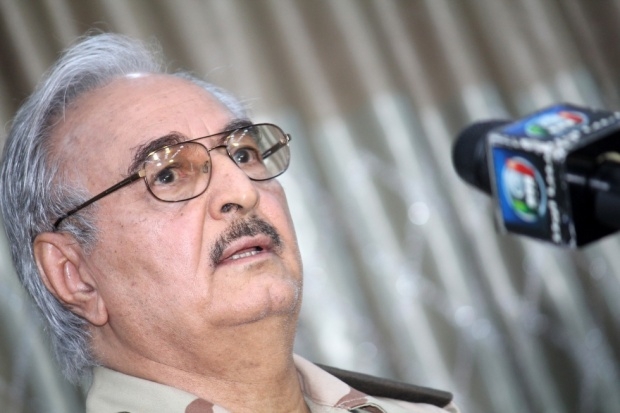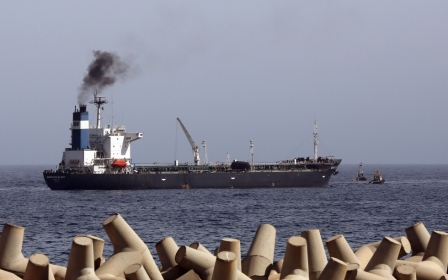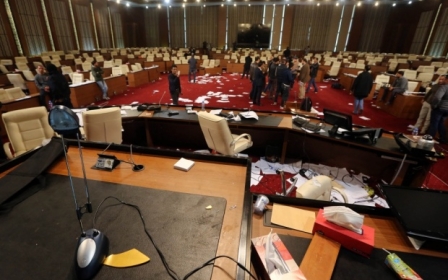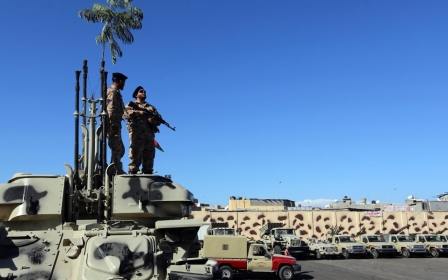Profile: Who is General Haftar?

Former general Khalifa Haftar has been one of the key players in dramatic developments in Libya that have shaken the North African country in recent days, but have been building up over the last few months and years.
On 16 May, Haftar launched an assault on Libya’s second city of Benghazi in an alleged attempt to drive out terrorists from eastern Libya. He has subsequently also been linked to an 18 May attack on the Libyan parliament or GNC, actions which according to some commentators may be pushing the country to the brink of civil war.
For all the confusion and conflicting news coming out of Libya, most media outlets have cast Haftar as their lead player over the last few days. He has been likened to Shakespeare's Iago and described with a bit of W C Fields this week, but who exactly is General Haftar, the man at the helm of ‘Operation Dignity’ that aims to retake Benghazi and root out Islamic forces? And, more importantly, does his biography matter or is this a regional power play with a willing actor?
Haftar’s rise and fall and rise again
Haftar, who is believed to be 64-years-old, rose to the rank of colonel under Muammar Gaddafi after he helped the ambitious young army man launch a bloodless coup against King Idris in 1969.
New MEE newsletter: Jerusalem Dispatch
Sign up to get the latest insights and analysis on Israel-Palestine, alongside Turkey Unpacked and other MEE newsletters
While Haftar was chosen to take a leading role in one of Gaddafi’s many unsuccessful Chad campaigns, his capture by opposition forces in 1987 led Gaddafi to disavow Haftar and claim that the general was not part of the Libyan army.
The move landed Haftar in a Chadian jail before he managed to flee to the US where he spent some 20 years in exile. Some say that Haftar may have had some dealings with the CIA during his time there, although this link has obviously never been proved.
Haftar only returned to Libya in 2011 when he help lead the rebel forces that eventually toppled Gaddafi with NATO help.
During the rebel offensive he led ground forces and acquired the rank of major general, but he officially retired from the military following Gaddafi’s overthrow.
A February coup?
In February 2014, Haftar reappeared on the scene when he declared that the government was suspended, a claim roundly denied by the authorities. Yet his rallying cry may have gained support in the intervening months.
Three months later, his "Libyan National Army" has launched the so-called “Operation Dignity” against Islamists in Benghazi.
While Haftar’s forces are called the National Army, they are not to be confused with the official state military, and much controversy has surrounded the interplay and collusion between the two forces. Initial reports suggested that the army was backing his assault, although this was later denied by the army.
However, on Monday there were various signs that some militias and certain factions within the army may be siding with Haftar.
Haftar is believed to have the backing of some militias in the Zintan area, which are located in western Libya and are regarded as well-trained and armed. These militias tend to clash with more Islamist-inspired forces.
An elite army commander in Benghazi Colonel Wanis Abu Khamada has also come out in support of Haftar and pledged all his men and weapons to the “dignity” cause.
Haftar accused sections of the authorities of collusion with "criminal terrorism" but he has denied staging a coup or seeking power.
Instead he has reiterated earlier assertions that he is responding "to the call of the people" to defend them against "terrorists".
Middle East Eye delivers independent and unrivalled coverage and analysis of the Middle East, North Africa and beyond. To learn more about republishing this content and the associated fees, please fill out this form. More about MEE can be found here.




